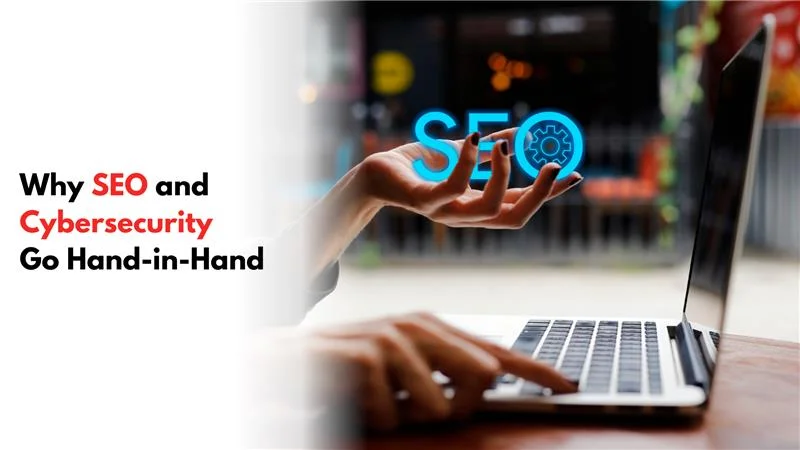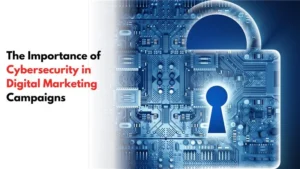When you think about optimizing your website, your mind might immediately go to keywords, backlinks, and creating high-quality content. But there’s another critical element often overlooked when it comes to achieving SEO success—cybersecurity. Yes, you read that right. Cybersecurity and SEO are closely connected, and neglecting one could seriously harm the other.
For small business owners, digital marketers, and website developers alike, understanding how these two fields intersect is paramount. Ignoring cybersecurity issues might not just put your data at risk but could also sabotage your search engine rankings. This blog examines why SEO and cybersecurity are inseparable and explores actionable strategies to protect your site while maintaining a competitive edge in search rankings.
Whether you’re running an e-commerce website or managing a blog, this post will highlight what you need to know about balancing cybersecurity with stellar SEO performance.
Contents
How Cybersecurity Impacts SEO Rankings
Cybersecurity directly influences your website’s performance, user experience, and ultimately, your SEO rankings. Search engines like Google prioritize user safety, so a secure website is more likely to perform better in search rankings. Here’s why cybersecurity affects how your site is seen by search engines such as Google:
Trust Signals Are Key to SEO Success
Search engines favor websites that emit strong trust signals. Factors like HTTPS implementation, user data protection, and no history of cyber breaches act as assurances to both users and Google that your site is safe. When your website lacks cybersecurity measures, Google becomes less likely to feature it at the top of search engine result pages (SERPs).
The Role of SSL Certificates
SSL certificates secure the connection between a web server and a browser by encrypting data. When you see a padlock symbol in the address bar or an “https” prefix, that’s SSL hard at work. Back in 2014, Google explicitly announced that HTTPS would be used as a ranking signal. If your website isn’t HTTPS-encrypted, not only are you putting user data at risk, but your rankings might also suffer.
Cyberattacks Lead to Downtime
Imagine this scenario: Your website gets hacked, defaced, or infected with malicious software. Not only will this disrupt your operations, but it will also result in prolonged downtime. Google penalizes websites with excessive downtime because it impacts user experience. For SEO purposes, every second your website is inaccessible could lead to a significant drop in rankings.
SEO Penalties for Malware and Phishing Schemes
If your website is compromised and used as a host for malware or phishing activities, search engines will flag it as unsafe. Once blacklisted, your website may lose traffic, with users seeing scary “this site may harm your computer” warnings when visiting your pages. A bad reputation online due to cybersecurity lapses can take months, if not years, to recover from.
Bounce Rates and User Experience
Users value security, and they will bounce within seconds if they encounter a website that appears suspicious. Higher bounce rates send signals to Google that users aren’t enjoying the content or feeling safe while visiting, impacting your SEO performance.
Common Cybersecurity Threats That Affect SEO
Understanding the risks will help you take the right measures to keep your site and its SEO intact. Below are some of the most common cybersecurity threats that can damage your online visibility:
1. Website Hacks
Hackers may break into your site for different reasons, such as stealing sensitive data or using your website to distribute spam. Compromised websites are a significant red flag in Google’s books.
2. Malware
Malware can infect legitimate websites and serve malicious content to users. If search engines detect malware present on your pages, they will flag and de-rank your site almost immediately.
3. Ransomware Attacks
Ransomware encrypts your data and demands payment for a decryption key. Websites hit by ransomware often experience downtime, severely affecting their reputation and rankings on search engines.
4. Bot Attacks
Automated bots can overload servers, scrape content, and distribute spam through comment sections on your blog. The more bots drag down your user experience, the worse your rankings will be.
5. Phishing Scams
Hackers can hijack a legitimate website and use it to harvest sensitive information from users. Not only will this harm your customers, but you could face lawsuits along with losing Google credibility.
How to Improve Cybersecurity Without Neglecting SEO
The right cybersecurity measures can keep your site safe and ensure your SEO efforts aren’t wasted. Here are actionable steps to protect your online presence while maintaining strong search visibility:
1. Install and Regularly Update SSL Certificates
Upgrading from HTTP to HTTPS is non-negotiable. An SSL certificate will encrypt data and protect sensitive user information. Bonus? It’s also a direct ranking factor for Google.
2. Keep Software and Plugins Updated
Outdated plugins and software create vulnerabilities in your site. Ensure you regularly update content management systems (CMS) like WordPress and other tools, as many updates often address security flaws.
3. Backup Your Data Regularly
Always have a backup solution in place. If a cyberattack occurs, you’ll minimize downtime by restoring a previous version of your site. This will prevent disruptions impacting SEO rankings while keeping your website operational.
4. Monitor and Neutralize Bot Traffic
Use tools like Google Analytics or specialized bot-mitigation software to detect unusual traffic spikes caused by bots. Blocking malicious traffic quickly will minimize damage to your website’s reputation.
5. Use Secure Passwords and Two-Factor Authentication
Encourage a strong password policy for backend users and turn on two-factor authentication (2FA). A secure login process can prevent unauthorized access to your website.
6. Regularly Audit Your Website for Malware and Vulnerabilities
Malware scans and cybersecurity audits are foundational. Online scanning tools, such as Google Search Console’s Security Issues feature, can alert you to security threats affecting your site’s performance.
7. Educate Employees on Cybersecurity Best Practices
If multiple people have admin access to your website, ensure they follow best practices, such as avoiding phishing scams and not storing passwords in unsafe locations.
Examples of Businesses Prioritizing Both SEO and Cybersecurity
Many organizations have successfully integrated both SEO and cybersecurity into their operations. For example:
E-commerce Websites
Organizations like Amazon use HTTPS for every transaction to protect user data. Their strong emphasis on security complements SEO, building consumer trust while driving repeat traffic.
Financial Institutions
Banks like Chase or Bank of America invest heavily in cybersecurity technologies to safeguard data while benefiting from improved search rankings due to enhanced user trust and usability.
Startups
Smaller e-commerce sites often focus on installing firewalls and real-time malware scanning software to ensure that new users feel secure enough to convert into paying customers.
Watch the video to get to know in a detailed manner
Invest in Both SEO and Cybersecurity for Long-Term Success
Good SEO goes beyond keywords—security is a fundamental aspect of user experience. By neglecting cybersecurity, businesses risk penalties, traffic loss, and, worst of all, customer trust. It’s no longer about treating SEO and cybersecurity as separate entities—they are two sides of the same coin.
At WeTheDigital, we specialize in helping businesses integrate offline and online channels in their marketing strategy. Our team of experts can help you craft a marketing plan that combines both worlds for maximum impact. Get in touch with us today to learn how we can help you enhance your marketing efforts.





